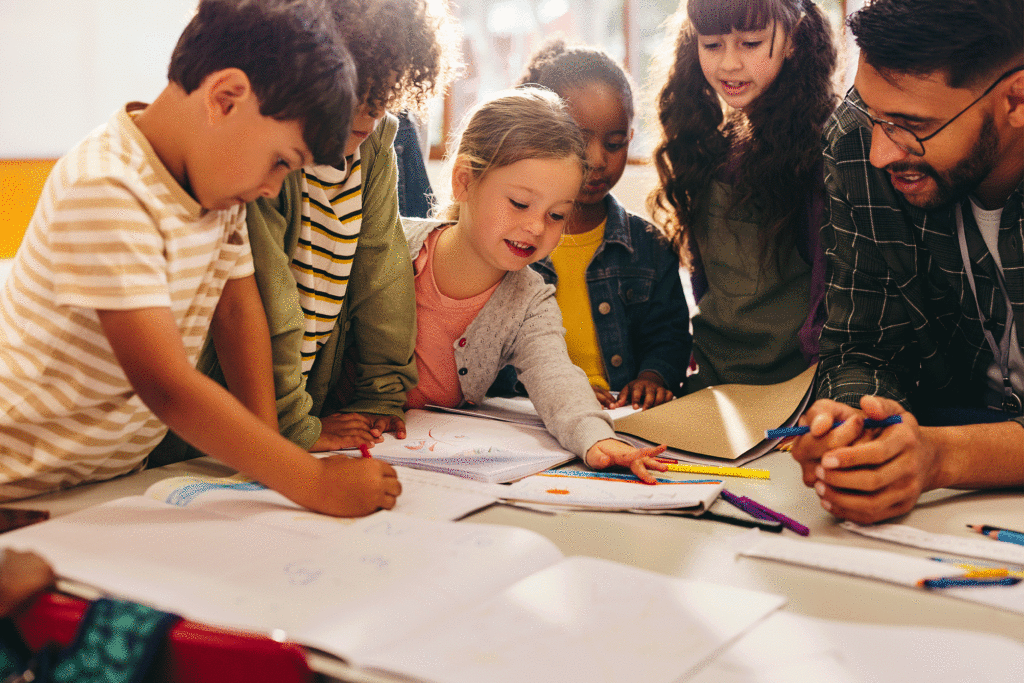How Live Language Learning is Boosting Kids’ Social-Emotional Learning

Social-Emotional Learning (SEL) has become a buzzword in education in recent years for good reason.
Parents and educators alike are recognizing the need to go beyond academics and help children build emotional intelligence, empathy, and strong relationship skills. But did you know that learning a new language, especially with a live teacher, can be an incredible way to achieve these goals? Here’s a closer look at how live language classes promote SEL and set children up for lifelong success.
1. Building Self-Awareness Through Real Interaction
Learning a language is more than memorizing vocabulary; it’s about communicating and understanding different perspectives. Live teachers offer real-time feedback, which helps children notice and understand their own reactions and emotions in a safe space. This awareness is central to SEL—children become more mindful of how they express themselves, how others perceive them, and how to navigate their emotions. Studies have shown that SEL programs significantly boost students’ confidence and self-awareness, key foundations for emotional health throughout life.
2. Cultivating Empathy and Social Awareness
When children learn a language with a teacher, they’re not just learning words but also cultural cues, facial expressions, and body language that go beyond the textbook. Understanding different cultures and perspectives enhances empathy and social awareness, essential SEL competencies. According to the Collaborative for Academic, Social, and Emotional Learning (CASEL), fostering empathy leads to better peer relationships and an increased sense of belonging, both of which are linked to academic and personal success.
3. Improving Self-Management and Emotional Resilience
Language learning, especially with a live teacher, involves trial, error, and perseverance. Children practice self-management by staying engaged, adapting to new information, and managing any frustration that may arise from learning something new. These experiences build resilience, a crucial aspect of SEL. Research from Edutopia shows that SEL interventions reduce aggression and emotional distress, contributing to positive attitudes and a readiness to face challenges both inside and outside the classroom.
4. Developing Relationship Skills
Live language classes offer a unique chance for kids to practice relationship skills in a structured, nurturing setting. They learn the art of listening, expressing themselves, and cooperating with others—a fundamental part of SEL. Studies show that strong teacher-student relationships improve students’ engagement and emotional health, which supports both academic performance and personal growth.
5. Practicing Responsible Decision-Making
In a live class, children make decisions constantly—how to respond to questions, when to ask for help, or how to react to new concepts. These decisions may seem small, but they build responsible decision-making skills over time. These are the skills that, according to research, can contribute to better academic performance, reduced behavioral problems, and a more constructive approach to challenges in daily life.
The Big Picture: Why SEL and Live Learning Matter
Investing in Social-Emotional Learning and live language learning goes beyond teaching a child to speak another language; it’s about raising thoughtful, resilient individuals. The benefits don’t end in the classroom: Social-Emotional Learning skills support academic growth, mental health, and career success well into adulthood. Studies by CASEL, Edutopia, and others reveal that SEL interventions lead to improved academic outcomes, better social behavior, and even increased economic benefits down the line. Langmobile online courses are language classes that emphasizes real interaction is an ideal way to lay this foundation.
As parents and educators, embracing live language learning for its role in Social-Emotional Learning could be one of the best steps toward raising socially aware, emotionally intelligent children. After all, giving kids the tools to understand and connect with others is a gift that lasts a lifetime.
For more information on SEL’s benefits in education, explore resources from Edutopia
If you like this post and would like to see more like it – Go to Langmobile Lifestyles

